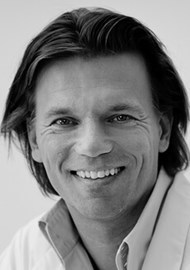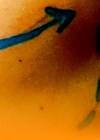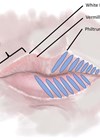Looking back at the pandemic, it has brought us unexpected friendships. The lack of direct interpersonal communication, meetings, parties and hugs increased the role of digital sources of contact which used to play a less important role in our lives.
For me personally, Instagram became one of the main channels to keep pace with what was happening in the aesthetic field. The scientific developments; the before and afters; the webinars; the opinions; the polemics; the friends and enemies. We found ourselves a new playground.

Across Instagram some colleagues catch your attention and become new ‘besties’. Now the world is open again I will meet these people I have been in contact with online, some for the first time in a few years and some for the first time ever. Just recently, I had a chat with three of them (Vivek Kuvelker, Christion Subbio and Danny Soares) about ‘The Gram’, and what connects us in spite of geographical or cultural boundaries: ethics, art and friendship.
People that are capable of producing Instagram posts that are pleasing to the eye catch our attention the most. Being in a visual field of medicine, our eyes are naturally drawn to art. It was an online art class for kids that drew the attention of Vivek Kuvelker (@skin.pharma, Stockton-on-Tees, UK) to the account of Plastic Surgeon Christion Subbio MD (@dr.subbio, Philadelphia, USA):
“It was Christian Subbio, who had an idea two years ago when COVID 19 started, to create a small online art class teaching children how to draw cartoon characters. He made a drawing of a nurse and showed children how to sketch the cartoon figure and I think he did it once or twice and then my daughter drew her own. I still have that picture today. Dr Subbio loves his art and is a fantastic cartoonist."
Vivek Kuvelker himself started studying computer graphics and photography at a very young age, when he was only 12. It came naturally to use his talent for the humorous ‘Squid Game’ spoof, starring Dr Leonie Schelke (@facial_ultrasound, Rotterdam, The Netherlands) and myself, mocking the aesthetic industry. It is this humorous view on the business we all work in that seems to be the common denominator. Alongside the artistic capacities required to take a joke to a higher level.

The post that drew my attention to Subbio was a hilarious ‘commercial’ for baby botox. The artistic quality and sheer fun of the video was striking. And, of course, it mocked the eagerness of us as a group of doctors trying anything to draw likes, followers and ultimately customers to our practices. And it works, for real. As Subbio says:
“At this point I don’t advertise at all, I mean nothing in traditional advertising. Literally 100% of my advertising at this point is just Instagram. I don’t do billboards. I don’t do magazine ads. I don’t do TV commercials or radio commercials. Instagram is far better than any advertising I’ve ever experienced because it allows you to post marketing content that you yourself have created that allows the viewers into your clinic and get to know you, hear you speak and to be taught by you. It makes them trust you as an expert. I don’t have to sell them anything and this advertising is for free. They are coming to me asking me for things that they have seen me teach about."
The best part of it for me is that it’s fulfilling two needs at once. It allows me to express myself to create content too. To fulfil that need to create artistically and at the same time promoting my business. In that sense, Instagram has really been a positive influence in my life. Of course, there’s plenty of downsides to it as well. I never would have imagined a social media platform would have changed my life the way that it has. At times I can find myself getting too involved with Instagram or checking my phone 20 times in one hour. So, in a way it is addictive and I would like to take a respite for a week or a month or even three months to do a cleanse, if I could. But I think my business would suffer. Because of that, I feel like I’m a bit of a slave to Instagram as well.

More than a way to draw in patients and express creativity, Instagram is also a channel for communicating with peers all over the world. Discussing techniques and visions, debating on science and opinions. Subbio explains:
“Education and the debunking of pseudoscience are two ways to create content on Instagram. And as you said, they can often be combined. So, I believe pseudoscience is rampant in our field. Our field is one in which art and science overlap, and in this grey zone pseudoscience can flourish. And it does flourish to a very concerning degree in our industry. And, unfortunately, I think one of the things that we don’t talk about enough at our conferences and our educational forums is critical thinking. How to take a claim made in our industry and really weigh the evidence behind it. I think we are all too quick, especially the inexperienced providers. We are too quick to see something that looks like research. Look at this current trend where the questioning of key opinion leaders or the questioning of research is frowned upon. What concerns me the most in our industry is this growing discouragement of scientific debate. Opinions seem to matter more than science nowadays. You can see it with the pandemic, if enough people click on something, it’s more important than what is real. Another interesting aspect of this, I think, is that in our field it is so incredibly difficult to create good science because these things are so hard to measure. How do you measure beauty?"
Having informative content on social media is thus more important than ever; and humour, it seems, is the key to making such educational info more alluring and engaging to a broad audience. Satire may be especially well-suited to dispelling myths and educating the masses, at least such is the view held by Florida-based Facial Plastic Surgeon Danny Soares MD (@DannySoaresMD):
"The field of plastic surgery and aesthetic medicine is so replete with non-evidence-based claims, hyper-marketing, and excessive self-promotion / branding that it’s actually fairly comical, though the underlying cause is a more serious disregard for evidence-based practice and standards of care."
This, he believes, may actually pose harm to the well-being of impressionable viewers, who otherwise lack enough information to discern between what is true and what is false and are already coping with unprecedented rates of dysmorphia and self-esteem issues. A recent large study conducted by Dr Soares and his American Foundation for Aesthetic Medicine (AFFAM), a non-profit organisation, showed that the majority of before and after photos posted on social media disregard current standards, with nearly 40% scoring zero out of nine, representing potentially misleading content. He comments:
"The ability of social media to reach potential customers offers an incredible opportunity for plastic surgery and aesthetic medicine clinics. Unfortunately, however, visual platforms like Instagram tend to reward entertainment over quality educational content."

Which is why Dr Soares, and many of his like-minded colleagues, find that witty content, including amusing memes and videos, offers the chance to inform the viewer while dispelling myths in a way that is engaging, creative, and easy to follow. It is perhaps even more powerful as a tool to draw the attention of practitioners who frequently engage in promoting pseudoscience and unsubstantiated claims. Dr Soares adds:
"The trick is to maintain a professional approach while doing so; it’s a balancing act."
Danny Soares’ brilliant spoof video depicting a well-known pharmaceutical company was what originally made me aware of his existence. Danny and I have still not met due to overfilled agendas but I am sure we will soon. Vivek Kuvelker came to Amsterdam a few weeks ago to follow one of my Masterclasses, so we could finally meet in person. Christian Subbio and myself have been seen clubbing on Sunset Boulevard . . . it is wonderful to move an online connection into the real world.
Declaration of competing interests: None declared.
COMMENTS ARE WELCOME








